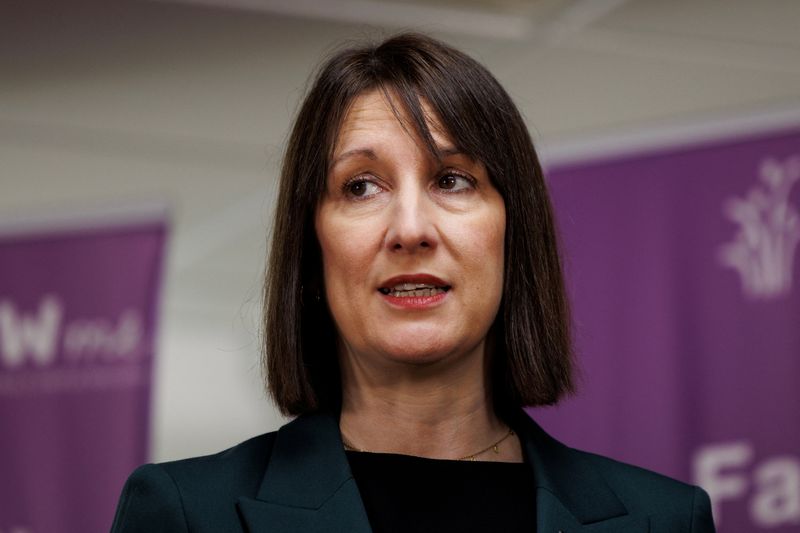Tonix Pharmaceuticals stock halted ahead of FDA approval news
Investing.com - UK Chancellor Rachel Reeves likely faces a fiscal hole of between £18 billion and £32 billion ahead of her autumn budget, according to a new Deutsche Bank (ETR:DBKGn) analysis published Wednesday.
The bank identifies four key factors eroding the Chancellor’s £9.9 billion fiscal headroom: changing market conditions adding £2-3 billion to borrowing, the US trade war impact costing approximately £5 billion, potential productivity growth downgrades adding around £15 billion, and policy U-turns on winter fuel allowance and welfare reforms costing up to £9.5 billion.
Deutsche Bank suggests spending cuts have reached their "political limits" following recent pushback, meaning tax increases will likely bear the burden of fiscal consolidation.
"We continue to see GBP 10-15bn in tax hikes announced as part of the forthcoming Budget. But this should now be seen as the floor for tax hikes in the autumn. The risk is that Chancellor Reeves needs to dig deeper to deliver even more," the bank said in a note.
The analysis outlines several potential revenue-raising measures, including extending fiscal drag (£7 billion), council tax reform (£1 billion), raising the Bank Levy (£1.5 billion), and targeting pension tax relief (£2 billion).
The report indicates the Chancellor could also pursue deregulation initiatives and leverage recent trade deals with India and the EU to boost growth projections, potentially adding £2.5 billion in revenues by 2029/30.
Additional efforts to close the tax gap could generate another £2-3 billion.
Deutsche Bank warns that if the fiscal hole exceeds £20 billion, the government may need to break its manifesto pledge not to raise key taxes, with employee National Insurance Contributions being the most likely target for reversal of recent cuts – a move that could raise nearly £20 billion.
